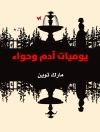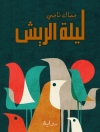In ‘Aunt Fanny’s Story-Book for Little Boys and Girls, ‘ the author employs a charmingly simplistic yet engaging prose style, aimed at enchanting young readers with delightful tales that reflect the moral and social values of the 19th century. The collection includes an array of stories that are not only entertaining but also educational, embedding lessons of kindness, honesty, and the rewards of virtuous behavior within the narrative. This captivating anthology serves as a bridge to the literary tradition of didactic children’s literature, echoing the pedagogical practices of its time while employing a playful tone to make learning enjoyable. Aunt Fanny, a pseudonym for a writer who emerges from the rich tapestry of early children’s literature, likely drew inspiration from her own experiences in nurturing young minds. As a proponent of wholesome educational content, her stories resonate with the social concerns of her era, reflecting a yearning to provide children with literature that promotes ethical behavior and moral development. Her dedication to children’s education underpins her creative outputs, culminating in this treasured collection. This book is highly recommended for parents, educators, and anyone who cherishes classic children’s literature. It serves as a timeless resource for instilling positive values in children, offering both entertainment and meaningful lessons that remain relevant today.
Sobre el autor
Aunt Fanny, a pseudonym for Frances Elizabeth Barrow (1822-1894), was a prolific 19th-century author known for her delightful children’s stories. Barrow assumed the endearing pen name ‘Aunt Fanny’ to resonate with her young readers, presenting herself as a familiar and trustworthy figure, akin to a loving family member sharing tales by the hearth. Her renowned work, ‘Aunt Fanny’s Story-Book for Little Boys and Girls’ (1853), stands as a testament to her literary charm and ability to captivate the hearts and imaginations of children. The collection of stories showcases Aunt Fanny’s unique narrative voice imbued with warmth and gentle moral guidance, characteristics that distinguished her within the field of children’s literature of her time. Through her engaging storytelling, Barrow facilitated a gateway to literacy and moral education, contributing significantly to the culture of reading within the domestic sphere. Her legacy persists through the ongoing appreciation of her literary contributions among scholars of children’s literature and the preservation of her books in libraries and private collections worldwide.












